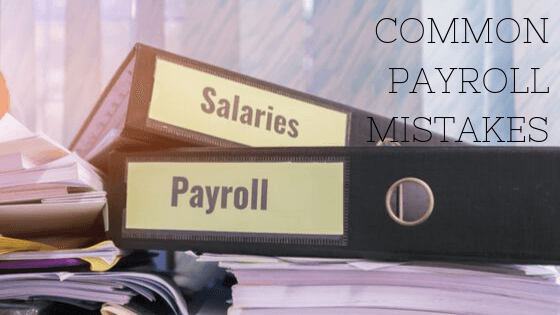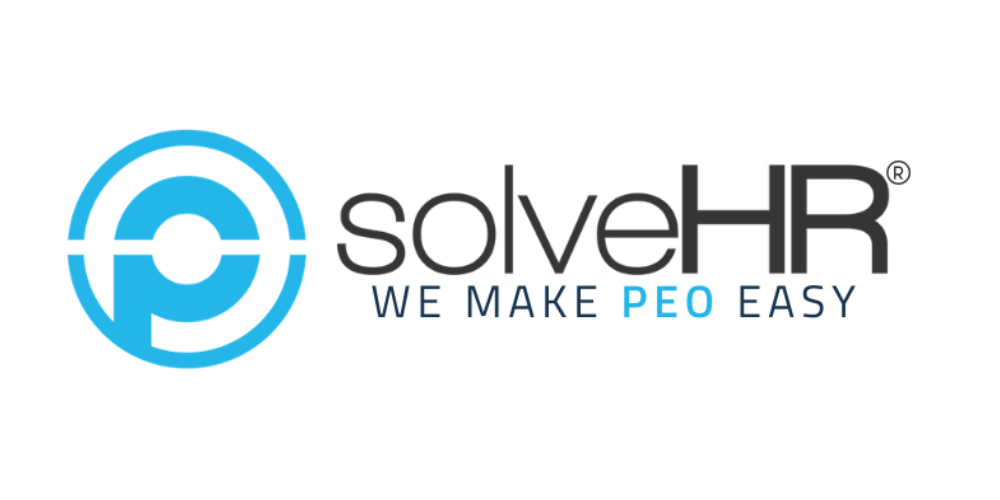- 09/13/2019
- Posted by: solveadmin
- Category: Payroll & Taxes

People make mistakes all the time, but there is often little room for error in the business world. Payroll is one of those facets of business where there can be little margin for error, as making a mistake can cost your employees their hard-earned dollars and land you in serious legal trouble.
 So, whether you’re a new business who just hired your first employee, or you’re an already established business who wants to brush up on some common mistakes that can be made in payroll, this week we’ll be discussing some common errors that businesses make when paying their employees.
So, whether you’re a new business who just hired your first employee, or you’re an already established business who wants to brush up on some common mistakes that can be made in payroll, this week we’ll be discussing some common errors that businesses make when paying their employees.
Payroll
For any new business or people who just want a refresher course, we’ll use this section to outline the anatomy of payroll. Payroll can be broken up into five different parts. These parts fit into one another and vary depending on where you are in the United States, but for the most part, they’re the same for every business. The anatomy of payroll is as follows:
Pay Periods and Paydays– a pay schedule is essentially when your employees are
paid for certain days of work. The start and end dates of this schedule are the pay
period, which represents the period that your staff worked and earned wages. Pay
periods vary and some common examples are weekly, biweekly, and semimonthly.
Collecting Employee and Employer Taxes– Taxes can be broken up into two
parties—employees and employers— who are required to pay taxes on wages.
These taxes are owed to both the state and federal governments and vary
depending on which state you’re in. Employers are usually responsible for
collecting federal income tax, Social Security, and Medicare tax from employees’
paychecks.
Paying and Filing Taxes– After you have collected the taxes from an employees’
paycheck, you must generally pay federal and state income taxes monthly. Other
types of taxes are sometimes paid quarterly. Now for filling. After paying
employees you must file the appropriate forms like Federal Form 941, Form 940,
or Forms W-3 and W-2. Each form varies on how often they must be turned in,
but for this article, we won’t get into it.
Federal, State, and Local Laws– As you are setting up payment, you must be
familiar with all of the federal, state, and local labor and employment laws. For
example, the federal minimum wage is $7.25 but can differ by state and even the
city that you’re in.
Timekeeping– For any hourly, non-exempt employees, you must keep track of
their hours worked. Most workers are either classified as exempt or nonexempt
depending on their salary and type of work they do.
Common Mistakes
After reading that crash course in payroll you can probably begin to see where things can get complicated. This is why we’ve outlined some of the more common mistakes with payroll and how you can avoid them below. This post is just a general set of advice and any specific advice should be sought from a professional. Some of the most common mistakes in payroll are:
Setting up payroll incorrectly– This is a big one and can occur from several different mistakes, from incorrectly withholding the wrong amount of taxes to falling to establish a pay period that your employees understand. This is why it is not out of the question to hire professionals to help with the process.
Misclassifying Employees– Misclassifying an employee as an independent contractor or denying overtime to non-exempt salaried staff are potential violations of the Fair Labor Standards Act (FLSA), and the penalties can be large. To understand how to properly classify an employee, take a moment to read the DOL’s classification guidelines.
Misprocessing Garnishments– This is a topic that we touched on in another blog post about wage garnishments. But there are different rules to different kinds of employee garnishments and failing to comply could result in fines, even the employer having to pay the debts of the employee.
Forgetting to keep records– The FLSA requires a business to keep three years’ worth of pay records. In the event of an audit, meticulous record-keeping can help save you from headaches down the road. The documents that you have to hang on to vary, but are usually I-9s, W-4s, timesheets, payroll files, and even the date of every payroll.
Bad bookkeeping– This can be a case of falling to integrate payroll into your books. Payroll has a direct impact on the cash your business has in the bank, and bad bookkeeping can keep your employees from being paid.
Having trouble setting up a good payroll system for your business? SolveHR offers transactional HR services that handle the payroll and tax administration of your business! Let us take the headache out of paying your employees, so you can focus on what’s important—growing your business!

